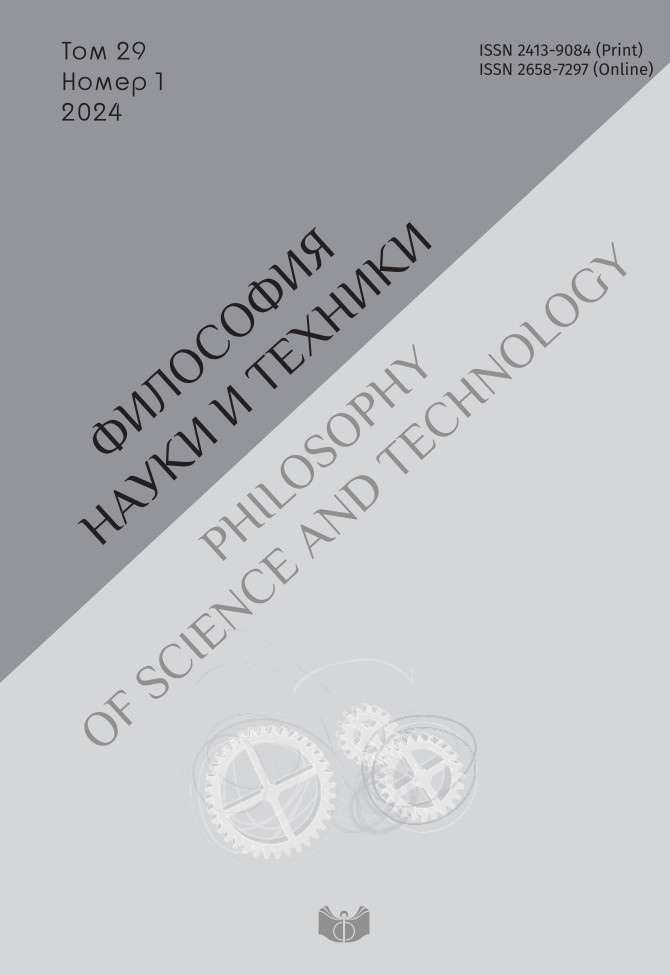Floridi’s thirteenth problem: on the role of the concept of information in the foundation of epistemology
DOI:
https://doi.org/10.21146/2413-9084-2024-29-1-138-151Keywords:
information epistemology, naturalization, uncertainty, knowledge, information, formalizationAbstract
L. Floridi’s philosophy of information is considered as a complex philosophical project that involves the solution of several tasks that are different in nature: the formation of a philosophical conceptual and categorical apparatus that is consistent with the needs of understanding the information reality, and the involvement of tools of information theory in the context of solving philosophical problems. The key question for this consideration is the question raised by Floridi about the possibility of substantiating epistemology by means of information theory: its content is understood as the substantiation of epistemology and analyzed. Attention is also paid to the relationship of epistemology to information theory as an independent scientific branch. Based on this, the assumptions existing in the literature about the possibilities of interaction between information theory and epistemology in the context of research on cognitive processes are considered. It is shown that the interaction of information theory and epistemology proceeds in the direction of naturalization and formalization of epistemological research, i.e., it affects both the content level and organizational level. As a source of examples of new epistemological problems and theoretical difficulties associated with the development of the information approach, the debatable objections of a number of authors regarding the ideas of F. Dretske, expressed in the pages of the journal “The Behavioral and Brain Sciences”, are considered. It is noted that the processes of naturalization and formalization of epistemological studies have a fruitful effect on the organization of the study of classical epistemological problems, expanding the methodological possibilities of philosophical search and enriching it with new content. The position according to which the naturalization and formalization of epistemology entails the loss of its own content is critically assessed. In conclusion, the author suggests that the formulation of the question of the possibility of substantiating epistemology by means of information theory, proposed by Floridi, needs some clarification.











